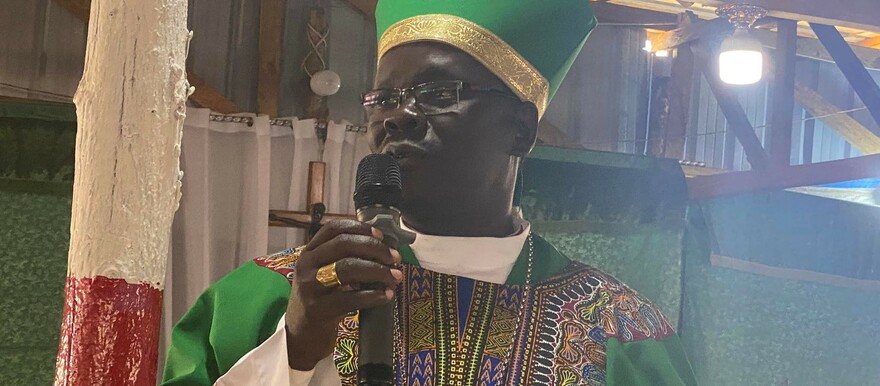The Bishop of the Catholic Diocese of Yei, Central Equatoria State, has called on the government to restore peace in the villages of the greater Equatoria so that refugees can return to their homes.
Speaking to the congregation of St. Kizito Parish in Juba on Sunday, Bishop Alex Lodiong Sakor said South Sudanese in the refugee camps in neighboring countries are suffering and want to return back home but they fear insecurity.
He says a secure environment would encourage refugees to return home.
“Some politicians are saying our people in the refugee camps should return to South Sudan, to where? Are they coming to Juba? No, they want to go to their villages, and are their villages safe? They are not safe. Let us make our villages and our people feel safe before they come,” Bishop. Lodiong said.
Bishop Lodiong noted that politicians who keep calling on refugees to return home without providing security do not care for their wellbeing.
“We are not good leaders trying to bring our people from the camp to be mistreated in their villages by us, we cannot allow that as a church,” he stated.
The Bishop also faulted politicians saying they live in hotels and enjoy maximum security while many citizens face insecurity and are forced to abandon their homes in search of peace.
Bishop Lodiong appealed to other South Sudanese from different parts of the country not to occupy the homes and lands belonging to those who have sought refuge elsewhere.
“Don’t occupy their places because they are not there, you sent them away because you want to occupy their place. Don’t occupy their places when they are not there, it is their land until it is secured they will come back,” he noted.
According to the UN refugee agency, UNHCR, neighboring countries host more than 2.2 million South Sudanese refugees as of end of August 2022. Another 2 million are internally displaced, a majority of whom are women and children. The refugees sought refuge following the civil wars of 2013 and 2016, ongoing communal violence in different parts of the country, insecurity, floods and food shortages.




